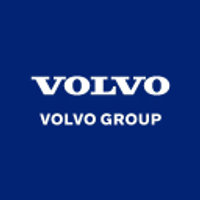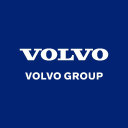
Volvo AB
STO:VOLV B

Intrinsic Value
The intrinsic value of one
 VOLV B
stock under the Base Case scenario is
hidden
SEK.
Compared to the current market price of 251.4 SEK,
Volvo AB
is
hidden
.
VOLV B
stock under the Base Case scenario is
hidden
SEK.
Compared to the current market price of 251.4 SEK,
Volvo AB
is
hidden
.
The Intrinsic Value is calculated as the average of DCF and Relative values:
Valuation History
Volvo AB

Fundamental Analysis


Revenue & Expenses Breakdown
Volvo AB

Balance Sheet Decomposition
Volvo AB

| Current Assets | 361.8B |
| Cash & Short-Term Investments | 67.1B |
| Receivables | 195.5B |
| Other Current Assets | 99.2B |
| Non-Current Assets | 337.1B |
| Long-Term Investments | 23.3B |
| PP&E | 115.6B |
| Intangibles | 43.4B |
| Other Non-Current Assets | 154.8B |
Free Cash Flow Analysis
Volvo AB

| SEK | |
| Free Cash Flow | SEK |
Earnings Waterfall
Volvo AB

|
Revenue
|
526.8B
SEK
|
|
Cost of Revenue
|
-382.8B
SEK
|
|
Gross Profit
|
144B
SEK
|
|
Operating Expenses
|
-74.9B
SEK
|
|
Operating Income
|
69.1B
SEK
|
|
Other Expenses
|
-18.7B
SEK
|
|
Net Income
|
50.4B
SEK
|
VOLV B Profitability Score
Profitability Due Diligence

Volvo AB's profitability score is hidden . The higher the profitability score, the more profitable the company is.

Score
Volvo AB's profitability score is hidden . The higher the profitability score, the more profitable the company is.
VOLV B Solvency Score
Solvency Due Diligence

Volvo AB's solvency score is hidden . The higher the solvency score, the more solvent the company is.

Score
Volvo AB's solvency score is hidden . The higher the solvency score, the more solvent the company is.
Wall St
Price Targets
VOLV B Price Targets Summary
Volvo AB

Dividends
Current shareholder yield for  VOLV B is
hidden
.
VOLV B is
hidden
.
Shareholder yield represents the total return a company provides to its shareholders, calculated as the sum of dividend yield, buyback yield, and debt paydown yield. What is shareholder yield?
The intrinsic value of one
 VOLV B
stock under the Base Case scenario is
hidden
SEK.
VOLV B
stock under the Base Case scenario is
hidden
SEK.
Compared to the current market price of 251.4 SEK,
 Volvo AB
is
hidden
.
Volvo AB
is
hidden
.



























































 You don't have any saved screeners yet
You don't have any saved screeners yet